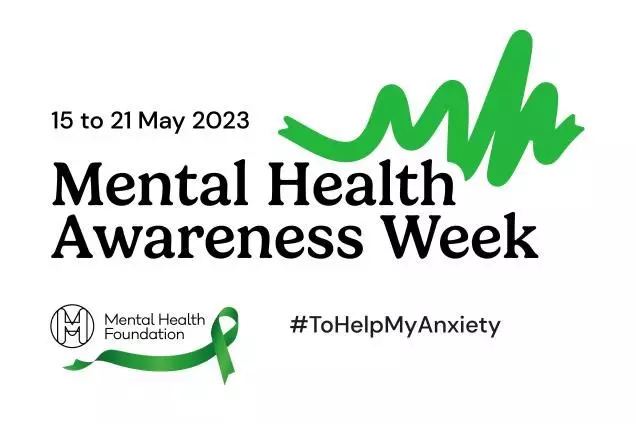
Upgrading Traffic Markings to Boost Safety at Frozen Food Distribution Hub
Introduction The project undertaken at a leading frozen food distribution hub focused on enhancing the safety of 52 HGV loading…
Read case study
Mental Health Awareness Week 2023 runs from 15 - 21st May. This year's theme is dealing with anxiety.
Anxiety is a common emotion experienced by everyone, but sometimes it can escalate and develop into a mental health issue. Several factors can contribute to feelings of anxiety, including exam pressures, relationships, starting or losing a job, and significant life events. Additionally, financial concerns and the inability to meet basic needs, such as heating and food, can also trigger anxiety. Fortunately, there are simple steps that can make managing anxiety easier:
1: Focus on your breathing
When anxious thoughts arise, try directing your attention to your breath. Concentrate on the sensation of inhaling and exhaling, allowing it to assist in controlling your thoughts.
4-7-8 breathing technique:
Gently close your mouth and inhale quietly through your nose, mentally counting to four. Hold your breath and count to seven. Exhale through your mouth, creating a whoosh sound, while counting to eight. Repeat this cycle three more times, completing a total of four breaths.
2: Engage in physical activity:
Exercise is an effective method for dealing with anxiety. Remember, the level of activity doesn't have to be intense; try incorporating gentle stretches, yoga, or seated exercises into your routine. Alternatively, going for a walk or participating in activities like running, swimming, or fitness classes can redirect your focus, diverting your mind from anxious thoughts. Any amount of exercise can be beneficial.
3: Maintain a journal
It's crucial not to dismiss our worries. Take the time to document what's happening in your life and how it impacts your well-being. This practice can help you identify the triggers of your anxiety, enabling you to better prepare for and manage situations that may induce anxiety. Setting aside a designated "worry time" each day, such as half an hour in the morning, allows you to acknowledge and write down your concerns in the diary. Once this period is over, you can proceed with the rest of your day, taking control and preventing anxiety from impeding your goals.
4: Challenge your thoughts
Anxiety often leads to repetitive thinking patterns known as "rumination," which is unhelpful. When you catch yourself ruminating, jot down the thought and question its validity. Is the worry likely to materialise? Are you being realistic? Have you had similar thoughts in the past that didn't come true? By challenging these thoughts, you make it easier to counter them and prevent them from overwhelming you.
5: Seek support for financial worries:
Money-related concerns frequently contribute to anxiety. If you're worried about bill payments, struggling with debt, or uncertain about meeting your family's expenses, reach out for assistance. Ensure you are availing yourself of all the government support you qualify for, and consider consulting organisations like Citizens Advice or StepChange.
6: Spend time in nature
Research demonstrates the positive impact of spending time in nature on our mental health. It induces a sense of calmness and reduces stress levels. Engaging with nature can be as simple as tending to flowers in a window box or taking a walk in the woods. Although any amount of time spent in nature is beneficial, try to dedicate a significant period, such as an hour or more, to genuinely connect with and immerse yourself in the natural environment.
7: Connect with others and express your feelings
Anxiety can make you feel isolated, but connecting with people can provide substantial support. Spend time with friends or engage in activities such as volunteering, sports, social clubs, or peer support groups to meet new people. Expressing your feelings and talking about them can help alleviate anxiety. Sometimes, vocalising your worries diminishes their power over you.
8: Prioritise quality sleep and rest
Achieving rest and a good night's sleep can be challenging when your mind is preoccupied with worries. However, there are techniques that can help. If anxious thoughts keep you awake, write them down in your journal. If sleep still eludes you, get up and have a non-caffeinated beverage, waiting until you feel more tired before returning to bed. Keeping a record of your sleep patterns, bedtime, diet, and frequency of waking up in your journal can help establish a routine that promotes better sleep quality.
9: Adopt a healthy diet
In times of anxiety, many of us tend to turn to sugary snacks, junk food, or alcohol for temporary relief. It's important to avoid using unhealthy foods or drinks as coping mechanisms, as they can cause long-term harm. Likewise, smoking or using recreational drugs should be avoided. Consistently consuming nutritious food helps regulate blood sugar levels and provides the energy needed for overall well-being. Remember, caffeine in coffee, tea, and fizzy drinks can impact your mood and disrupt sleep, so it's best to consume them in moderation and avoid close to bedtime.
At Jointline, we are aware that maintaining good health is vital for a a well-rounded, healthy, and highly efficient work environment. Hence, we provide a private healthcare plan that gives every employee access to an extensive array of health services that includes online GP, dental treatment, physiotherapy, osteopathy and chiropractic treatments. We take great pride in endorsing multiple initiatives and ensuring our employees receive valuable mental health guidance and red flag training. This training equips our staff with the ability to recognise and manage mental health concerns before they escalate. Moreover, we offer an Employee Assistance Program (EAP) to provide necessary support during challenging times.
To find out more about dealing with Mental Health and anxiety visit anxietyuk.org

Introduction The project undertaken at a leading frozen food distribution hub focused on enhancing the safety of 52 HGV loading…
Read case study
Introduction Jointline's surface dressing division recently completed a resin bound surfacing project at Bridge Place, off Falcon Way, Brigg.The project entailed…
Read case study